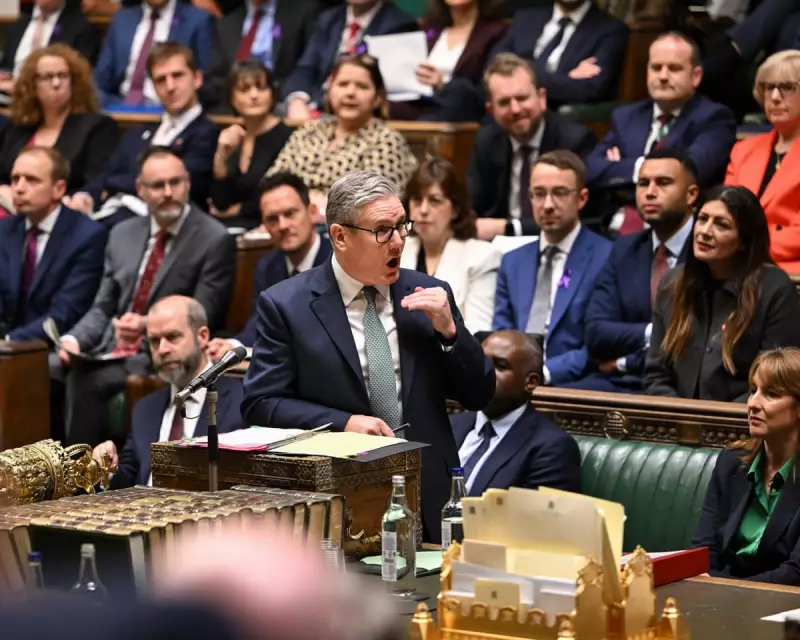
Keir Starmer finds himself fighting for his political life as speculation about his future as Labour leader reaches fever pitch. The Prime Minister's dramatic fall from grace has created a crisis within the governing party that shows no signs of abating.
A Prime Minister in Peril
Downing Street attempted to control the narrative this week by briefing that Starmer expects to face and defeat any leadership challenge. However, this move appears to have backfired spectacularly, instead highlighting the deep divisions within Labour ranks. The public's judgment on Starmer has become brutally clear, with approval ratings hitting unprecedented lows for a sitting Prime Minister.
Behind the scenes, anxiety runs deep among Labour MPs and officials. One government member described the situation as "serious, chaotic and incoherent", while a cabinet minister admitted "it's worse than I thought". A veteran MP summed up the mood: "Lots of discontent, but no plan."
The Streeting Factor
This week's briefings were widely interpreted as targeting Health Secretary Wes Streeting, who was scheduled for media appearances and an NHS speech. Rather than silencing potential rivals, the strategy allowed Streeting to demonstrate his media skills and reaffirm loyalty while criticising what he called a "toxic" atmosphere in Downing Street.
The confrontation revealed several uncomfortable truths for Starmer: he appears not to be in full control of his administration, and potential successors like Streeting are positioning themselves as more credible media performers. When Starmer was forced to condemn hostile briefings in the Commons, it only emphasised his weakening authority.
Historical Precedents and Future Scenarios
Labour faces uncharted territory. No Labour prime minister has been forced out against their will in modern times, with even Gordon Brown successfully seeing off a 2009 challenge. The party's traditional loyalty to its leaders appears to be evaporating, mirroring the Conservative tendency for leadership coups that removed Theresa May, Boris Johnson and Liz Truss.
Several potential triggers loom on the horizon:
- The upcoming budget in two weeks could force a challenge if it proves unpopular
- Local elections next May in Scotland, Wales and England might deliver landslide defeats
- 20% of Labour MPs (81 of the current 405) could trigger a formal leadership contest
Like John Major in 1995, Starmer could attempt to resolve the situation by resigning and standing again, though this strategy did little to strengthen Major's authority and would likely prove equally ineffective now.
Broader Implications for Labour
The crisis extends beyond Starmer's personal fortunes. One autumn poll suggested Labour could collapse to under 100 seats in the next election, which would represent the party's worst-ever performance. This raises fundamental questions about whether either of Britain's traditional governing parties can survive the current political realignment.
While many Labour MPs dream of a leadership change reviving their fortunes, the reality may be that both main parties are undergoing irreversible disintegration. Neither Starmer, nor Streeting, nor any other potential successor may be able to halt this structural decline.
The sands are running out for Keir Starmer, but what comes next could prove even more challenging for a party grappling with its very identity and future.






